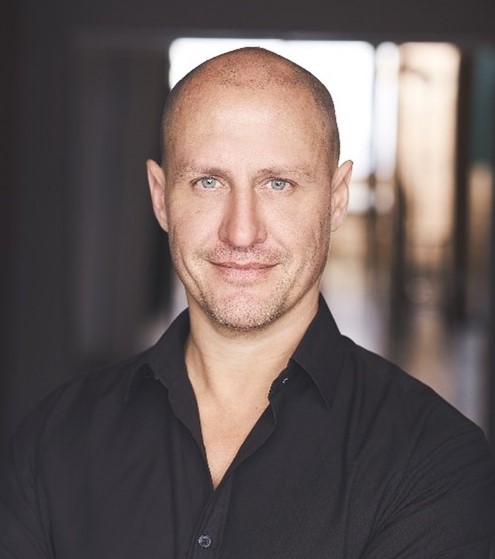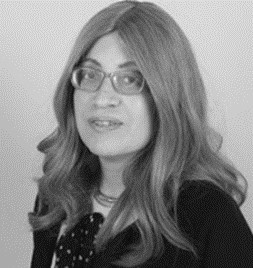Project Thinking Should Be Design Thinking
Interview with John K. Coyle
Design Thinking Expert, Olympic Medalist

Interviewed by Yasmina Khelifi
International Correspondent, PM World Journal
Paris, France
Introduction to the interviewee
John K. Coyle is one of the world’s leading experts in “Design Thinking” and Innovation. A highly sought-after speaker and lecturer, John is a graduate of Stanford University with a degree in Engineering – Product Design (Design Thinking) and Northwestern’s Kellogg Graduate School of business with an MBA in organizational behavior, marketing and entrepreneurship. A former head of innovation for a Fortune 500 wireless telecom, John has also been the SVP of innovation for a leading strategy consultancy. John is a world class athlete in two sports (cycling and speedskating) and an Olympic silver medalist, as well as an NBC Olympic Sports analyst, and a guest lecturer on Innovation at several leading universities (Kellogg, Marquette, CEDIM).
John is a two-time TEDx speaker, and an award-winning author of two books, including the (2018) best seller: Design For Strengths: Applying Design Thinking to Individual and Team Strengths. John is also a thought leader in the field of “chronoception” – the neuroscience and psychology of how humans process time. Learn more at his website www.johnkcoyle.com
Interview
Q1: First of all, thank you for accepting an interview request from PMWJ. You wrote a book about strengths, whereas we talk a lot about improving weaknesses as a project manager. Could you explain why it is important to know your strengths?
John Coyle (Coyle): We are programmed from youth to overcome obstacles, learn new things and to fix weaknesses. However, I would contend that there is a difference between skill gaps and true weaknesses. Project managers are trained to find the “weak link” in any program – which is a good thing. However, if the next step to addressing the “weak link” is to ask the person or group to fix their weakness, sometimes that can de-rail the entire project. Better to design around or find another way.
Q2: Could you tell us more about the process design thinking to strength you’ve developed?
Coyle: Design Thinking is a process – and a mindset – out of Stanford’s d.school (Design School) used by some of the world’s most successful companies (Google, Apple, Cisco etc.) The process is comprised of 5 main steps when working through a difficult challenge:
- Acceptance (you can solve a problem you are not willing to have),
- Definition (do you really understand the complexities surrounding this problem?)
- Empathy (do you really understand the human emotions and equations around this problem?)
- Ideation (generate human-centered ideas to solve the problem
- Test/prototype (fast fail different solutions until you get traction.) More important, though, is the mindset.
At first the mindset of a detached analytical scientist – not anchored to any particular approach or solution until steps 1 – 4 are concluded. This allows for new, non-obvious solutions to emerge, and then, the passionate approach of a human-centered empathic problem solver – pushing things forward with care. Usually these two get inverted in problem solving…
Q3: Was this process/framework impacted by Covid19 pandemic?
More…
To read entire interview, click here
How to cite this work: Khelifi, Y. (2021). Project Thinking Should Be Design Thinking: Interview with John K. Coyle, PM World Journal, Vol. X, Issue X, October. Available online at https://pmworldlibrary.net/wp-content/uploads/2021/09/pmwj110-Oct2021-Khelifi-Interview-with-John-Coyle.pdf
About the Interviewer

Yasmina Khelifi
Paris, France
![]()
Yasmina Khelifi, PMP, PMI- ACP, PMI-PBA is an experienced project manager in the telecom industry. Along with her 20-year career at Orange S.A. (the large French multinational telecommunications corporation), she sharpened her global leadership skills, delivering projects with major manufacturers and SIM makers. Yasmina strives for building collaborative bridges between people to make international projects successful. She relies on three pillars: project management skills, the languages she speaks, and a passion for sharing knowledge.
She is a PMP certification holder since 2013, a PMI- ACP and PMI-PBA certification holder since 2020. She is an active volunteer member at PMI France and PMI UAE, and a member of PMI Germany Chapter. French-native, she can speak German, English, Spanish, Italian, Japanese and she is learning Arabic. Yasmina loves sharing her knowledge and experiences at work, in her volunteers’ activities at PMI, and in projectmanagement.com as a regular blogger. She is also the host and co-founder of the podcast Global Leaders Talk with Yasmina Khelifi to help people in becoming better international leaders.
Yasmina can be contacted at https://yasminakhelifi.com/ or LinkedIn: https://www.linkedin.com/in/yasminakhelifi-pmp-telecom/
Visit her correspondent profile at https://pmworldlibrary.net/yasmina-khelifi/









